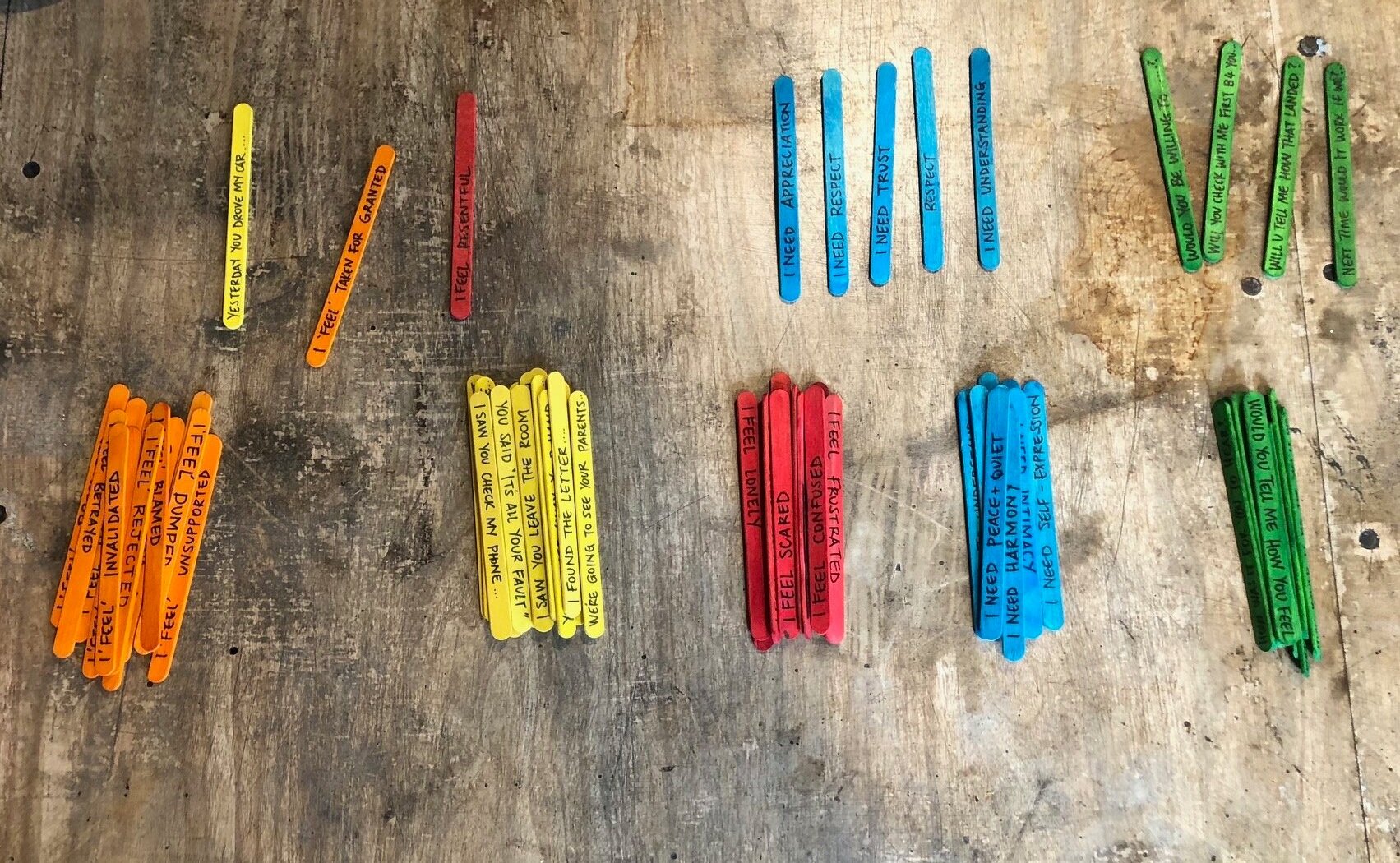
Frequently Asked Questions
“Marshall Rosenberg’s dynamic communication techniques transform potential conflicts into peaceful dialogues. You’ll learn simple tools to defuse arguments and create compassionate connections with your family, friends, and other aquaintances”. John Gray PhD. Author of Men are from Mars, Women are from Venus.

FAQ
Who Created Nonviolent Communication?
Clinical Psychologist Dr Marshall B. Rosenberg PhD developed Nonviolent Communication (NVC) in the 1960s in the USA.
“While studying the factors that affect our ability to stay compassionate, I was struck by the crucial role of language and our use of words. I have since identified a specific approach to communicating - speaking and listening - that leads us to give from the heart, connecting us with ourselves and with each other in a way that allows our natural compassion to flourish.” Marshall Rosenberg.
I am not Violent, how can NVC benefit me?
NVC is for everyone who is in a relationship (be that with family, friends, workmates or intimate partners) and sometimes struggles with getting their message across to others, or with being able to understand the behaviours of others.
Whenever there is discontent, there is something to learn, such as undertanding how unpleasant feelings help us to discover what it is that we are longing for.
Why is it called Nonviolent Communication?
Nonviolent Communication is also known as Compassionate Communication. The name was adopted by Marshall Rosenberg as he was influenced by the teachings of Mahatma Gandhi and Dr. Martin Luther King. It was Gandhi’s definition of Ahimsa or Nonviolence that inspired the name. Ahimsa is a Sanskrit word meaning to cause no injury and do no harm.
Nonviolence is “Our natural state of compassion when violence has subsided from the heart”. Mahatma Gandhi.
Is NVC suitable for couples?
NVC is beneficial for those: who find it hard to ask for what they want; who have difficulty saying no/setting boundaries; who find it difficult to make time for themselves and tend to give to others until they’re exhausted; and couples who find themselves in conflict and being unable to either stay present, or find a resolution.
It is helpful to attend the workshop together because you can support eachother to continue to practice after the workshop, and to better integrate the learning.
It’s beneficial for couples who are in a happy relationship, yet are maybe unable to overcome things like financial, sexual, and parenting differences and stresses.
Is it only for Domestic Violence?
Not at all, in fact, mostly Nonviolent Communication is about identifying the hidden non-physical violence in our everyday lives, in popular media, music, political discourse, humour, our dialogue, and even children’s cartoons. Violence is so much a part of our culture that we aren’t even aware of it’s impact.
NVC is a lot about un-learning what we have been taught by our parents, our education, religious, and political systems, and our habitual language.
What is a Restorative Circle?
Restorative Circles (RC) are part of a systematic community approach to addressing conflict, combining the principles of NVC with the structures of Restorative Justice. Developed in Brazil by Dominic Barter and built on local indigenous practices of deep listening circles.
Facilitated by community members, it is empowering, inclusive and leads to community resilience and trust. Everyone who attends an RC has been affected by the conflict, will get to be heard, and will listen to all others present. The aim is to work towards more connection and understanding, finding ways to make amends.
“The more aware I am of my inner landscape, the more responsibility I can take for what I bring to the conversation”. Bridget O’Donnell


